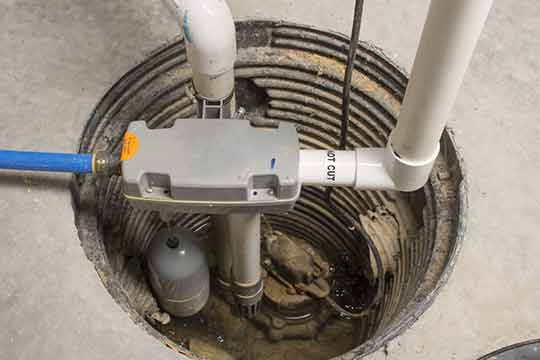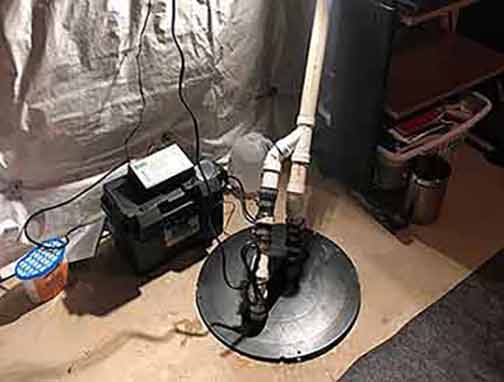
As a homeowner, you may have experienced the confusion and concern of hearing your sump pump running even when it isn’t raining. This can be puzzling, especially since the purpose of a sump pump is to remove water from your basement or crawl space during periods of heavy rainfall. So, why is your sump pump running when there is no rain? Below we will explore some possible reasons for this phenomenon and provide you with insights on what steps you can take to address the issue.
Understanding Sump Pumps
Before we dive into the reasons why your sump pump may be running when it isn’t raining, let’s first understand how sump pumps work. A sump pump is typically installed in a pit or basin in the lowest part of your basement or crawl space. Its primary function is to pump excess water away from your home’s foundation to prevent flooding or moisture damage. When the water level in the pit reaches a certain level, a float switch activates the sump pump, causing it to turn on and pump the water out through a discharge pipe.
Possible Reasons for a Sump Pump Running When It Isn’t Raining
Groundwater Level
One possible reason for your sump pump running even in the absence of rain is a high water table or an elevated groundwater level. A high water table occurs when the level of water beneath the ground is close to the surface. If your property is located in an area with a naturally high water table, it’s not uncommon for your sump pump to run periodically, regardless of rainfall. In such cases, it may be worthwhile to consult with a professional to determine if any additional measures, such as installing a battery backup sump pump, are necessary.
Plumbing Leaks
Another reason your sump pump may be running when it isn’t raining is due to plumbing leaks. Sometimes, water from plumbing pipes or fixtures can find its way into the sump pit, triggering the sump pump to operate. These leaks can occur in various areas, such as a leaking pipe joint or a faulty valve. If you suspect that plumbing leaks are the cause of your sump pump’s activity, it is advisable to hire a licensed plumber to inspect your plumbing system and resolve any leaks.
Hydrostatic Pressure
Hydrostatic pressure refers to the pressure exerted by water against the walls and foundation of your home. When the soil surrounding your property becomes saturated with water, it can exert significant pressure on your basement or crawl space walls. This pressure can cause water to seep into your home through cracks, gaps, or other vulnerable areas, leading to an activated sump pump. To address this issue, it may be necessary to implement measures to reduce hydrostatic pressure, such as installing a French drain system or sealing cracks in your foundation walls.
Sump Pump Malfunction
While the reasons mentioned above are common causes for a sump pump running when it isn’t raining, it’s essential to consider the possibility of a sump pump malfunction. Over time, sump pumps can wear out or experience mechanical failures, resulting in irregular or continuous operation. If you have ruled out other potential causes and your sump pump continues to run frequently or for extended periods, it is recommended to have a qualified technician inspect the pump and determine if repairs or replacement of the sump pump are necessary.

Repair or replace any faulty components and ensure that water from your plumbing isn’t entering the sump pump pit unnecessarily.
Steps to Address a Sump Pump Running When It Isn’t Raining
If you find yourself in a situation where your sump pump is frequently running even when it isn’t raining, here are some steps you can take to address the issue:
- Check the float switch: Ensure that the float switch is functioning correctly and isn’t stuck in the on position. If it is stuck, try gently moving it to see if it dislodges. If the float switch remains stuck, it may need to be replaced.
- Inspect for plumbing leaks: Examine your plumbing system and fixtures for any signs of leaks. Repair or replace any faulty components and ensure that water from your plumbing isn’t entering the sump pump pit unnecessarily.
- Talk with a professional: If you’re unable to determine the cause of the sump pump’s activity, it’s advisable to consult with a professional plumber or sump pump specialist. They can assess your specific situation, identify any underlying issues, and provide appropriate recommendations.
- Maintain your sump pump: Regular maintenance of your sump pump is crucial for its optimal performance. Clean the sump pump and pit regularly to prevent debris accumulation, test the pump periodically to ensure it turns on and off properly, and consider installing a battery backup system to mitigate any power outages.
- Consider a sump pump upgrade: If your sump pump is outdated or constantly experiencing issues, it may be worthwhile to upgrade to a more reliable and efficient model. Modern sump pumps often come with advanced features such as dual float switches and built-in alarms for added functionality and peace of mind.
To Conclude
In conclusion, a sump pump running even when it isn’t raining can be attributed to various factors such as groundwater levels, plumbing leaks, hydrostatic pressure, or sump pump malfunctions. Identifying the root cause of this issue is crucial to prevent potential water damage to your home and ensure the proper functioning of your sump pump. By following the steps outlined in this article, you can address the problem effectively and maintain a dry and protected basement or crawl space.